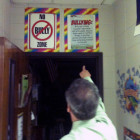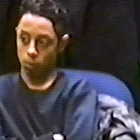
Criminal Case Puts Focus on Bullying Laws
|
Once considered a teenage rite of passage, bullying is now the subject of hundreds of state laws and a rallying cry for pundits, parents and celebrities.
Juvenile Justice Information Exchange (https://jjie.org/page/303/)

In late September, Torri was driving down the highway with her 11-year-old son Junior in the back seat when her phone started ringing.
It was the Hamilton County Sheriff’s deputy who worked at Junior’s middle school in Chattanooga, Tennessee. Deputy Arthur Richardson asked Torri where she was. She told him she was on the way to a family birthday dinner at LongHorn Steakhouse.
“He said, ‘Is Junior with you?’” Torri recalled.
Earlier that day, Junior had been accused by other students of making a threat against the school. When Torri had come to pick him up, she’d spoken with Richardson and with administrators, who’d told her he was allowed to return to class the next day. The principal had said she would carry out an investigation then. ProPublica and WPLN are using a nickname for Junior and not including Torri’s last name at the family’s request, to prevent him from being identifiable.
When Richardson called her in the car, Torri immediately felt uneasy. He didn’t say much before hanging up, and she thought about turning around to go home. But she kept driving. When they walked into the restaurant, Torri watched as Junior happily greeted his family.
Soon her phone rang again. It was the deputy. He said he was outside in the strip mall’s parking lot and needed to talk to Junior. Torri called Junior’s stepdad, Kevin Boyer, for extra support, putting him on speaker as she went outside to talk to Richardson. She left Junior with the family, wanting to protect her son for as long as she could ...

Once considered a teenage rite of passage, bullying is now the subject of hundreds of state laws and a rallying cry for pundits, parents and celebrities.
A single phone call made from a trailer home in rural Arizona, where 15-year-old Gerald “Jerry” Gault lived with his family, wound up indelibly altering the landscape of juvenile justice in America.

On November 11th, JJIE rolled out the next section of our juvenile justice resource hub on juvenile indigent defense. To kick start the launch, JJIE led a compelling and informative live group video chat with key players in the Juvenile Indigent Defense reform movement.

It's time for a new law that begins with the foundation that juvenile justice targets the kids who scare us—not those that make us mad.

Today JJIE rolled out the next section of our juvenile justice resource hub on juvenile indigent defense. To kick start the launch, join us tomorrow, Tuesday November 12th, for a compelling and informative live group video chat with key players in the Juvenile Indigent Defense reform movement—exploring youth’s rights and access to quality council and defense when they find themselves in court.

In a continuing series beginning today, JJIE will explore the complicated world of juvenile defense -- from the difficult job of the juvenile public defender to the jumble of juvenile court systems across the country.

On my first day in prison the doctor checked to see if I was a homosexual. It was a regular part of the intake process, and anyone discovered to be gay (as determined by the doctor) was placed in segregation. This was my introduction to the extra burdens that gay men faced in confinement. Beyond the normal dangers of being in prison, gay men had to face additional dangers, and were always more likely to be assaulted, robbed and raped. Even so, many men who were gay preferred to live in the general population instead of the “sissy dorm” and many others worked to hide their sexual orientation from the staff and the inmates.

In the United States, false confessions play a role in about one in four wrongful convictions overturned by DNA evidence. The confessions often come forth following hours of interrogation, resulting in a statement of guilt put on paper in front of the investigating detectives or on videotape.